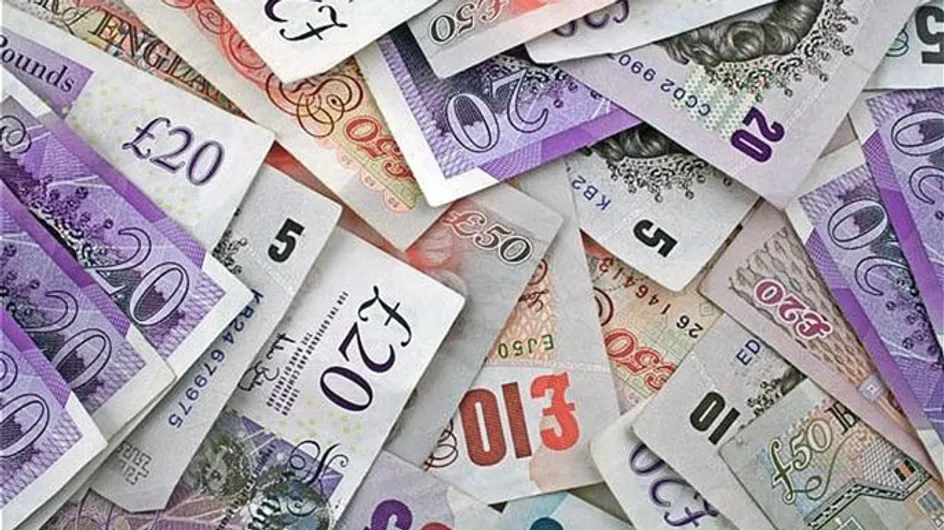We all cringe when we think of managing our finances, but when we think of debt? We run in terror. Most people have to deal with some level of manageable debt, but how can you organize yourself and your money so that your debt doesn’t get out of hand?
We talked to Tanisha Warner, spokeswoman with non-profit debt education and counseling company Money Management International, to find out what steps you can take to keep yourself out of the dredded debt red zone.
Turns out, staying out of debt is much simpler than you think. We have a few logical steps you can take to keep your finances on the straight and narrow while still treating yourself to your fave things.
1. Have an emergency savings fund
The first step Tanisha suggests to keep yourself out of debt is to have an emergency savings fund. Tanisha insists savings aren’t just for retirement or some big future purchase.
“Sometimes when people think of savings, they think of saving for some type of tangible reward,” she says. “They’re saving for a holiday, or they’re saving so they can buy a new car.”
Sadly it’s a fact of life - extra costs come up. “It’s not whether or not an unexpected expense should arrive, it’s when it will arrive,” Tanisha says. “We’re always going to be faced with things that we didn’t necessarily plan for. So, small financial setbacks, such as an unexpected car repair or if someone needs to make a quick travel because of a family emergency, those types of things can make a big blow to a budget if they don’t have an emergency savings fund.”
Prepare yourself for those unexpected moments by setting some money back every month into a fund specifically for emergencies. It is tempting to delve into this money when tempted by, say, that gorgeous and extremely pricey handbag, but remind yourself how useful these funds can be in the future! You're paying for the peace of mind. And that's worth a lot.
As Tanisha says, “I believe that savings funds are the things that basically keep small financial setbacks from becoming big financial emergencies.”
2. Don’t use credit as an extension of your income
Credit card debt is probably how most people find themselves faced with severe debt. That plastic is tricky, and it's oh so tempting to use money that you simply don’t have.
We need to change our entire outlook on credit cards. Tanisha warns that we simply can’t treat credit cards like money we already have. “Credit is not an extension of your income,” she says. “It really should be used as a convenience tool to pay for big purchases, like a new washing machine, when you don’t have the money all at one time, but you have a plan to pay it out in the next three months or so.”
One way to prevent abuse of your credit is to lower your credit limit. This could be tricky when the time comes to buy something big, (like that washing machine) but it will make you less likely to buy more on the card.
Only spend the money that you actually have, not the invisible currency in your credit limit.
3. Have a budget
According to Tanisha, though most people may say they live on a budget, they have no real grasp on how much they spend.
“Most people don’t have a budget,” she says. “They may say they do, because they have an idea of when they get paid, and they have an idea of the expenses that they have to pay out every month, but they’re missing some of those real little, itty bitty kind of expenses that just kind of happen without us noticing.”
In order to keep an eye on all those small expenses, like your daily coffee or Chinese takeout, track your expenses, “the same way that you would track your food when you’re trying to lose weight,” Tanisha says.
Either write down your purchases, or try out one of these nifty budgeting apps. You can organize the apps to show you exactly where you are spending the most money, and exactly where you can afford to cut back.
Just because you’re trying to save money and prevent a debt situation, that doesn’t mean you can’t have your morning latte! “You don’t have to deprive yourself, you’ll just be smarter in the way that you’re purchasing those things,” Tanisha says. Perhaps indulge in a latte or a shop bought lunch just twice a week instead of every day. Small changes can have a huge impact on your wallet.
4. Plan ahead for periodic expenses
What time of year to do you spend the most money? If you’re a holiday person, have a large family, or just love to give gifts, the months from November to January can make a big dent in your finances.
“Things like Christmas and birthdays come around every single year,” Tanisha says, “but every year many people fail to prepare, so they find themselves dealing with post-holiday debt at the beginning of the New Year.”
Instead of jumping blindly into the holiday season, plan ahead. Have money set aside for birthdays and holidays, so you don’t give into the temptation to use credit.
"It makes more sense to put things in place ahead of time, rather than dealing with them at that time by using credit.”
Like with the emergency savings, perhaps put some money back that is solely for travel or presents. Work the holidays into your budget, and don’t be caught unaware by the annual expenses.
5. Don’t deprive yourself
This step may seem counterintuitive, or perhaps not as important as the other tips in this list, but Tanisha assures us that treating yourself is just as important to avoiding debt as anything else.
“Treat yourself every now and then to a new pair of shoes,” Tanisha says, “even when you don’t need them, or a well-deserved massage or pedicure. Find ways to build that into your budget. It should be budgeted, it shouldn’t be just anything.”
That is the key difference. Treat yourself on a schedule, and avoid impulse buys. You can still buy that gorgeous handbag or have a relaxing day at the spa, but schedule it around your payday and your budget.
Whenever you are paid, take an amount of money out of your paycheck, just for yourself. Not for necessities, not for the house or the family. Just to treat yourself! That way, you are not tempted to spend money unexpectedly when tempted.
What's your favourite money-saving tip? Tweet us @sofeminineUK














